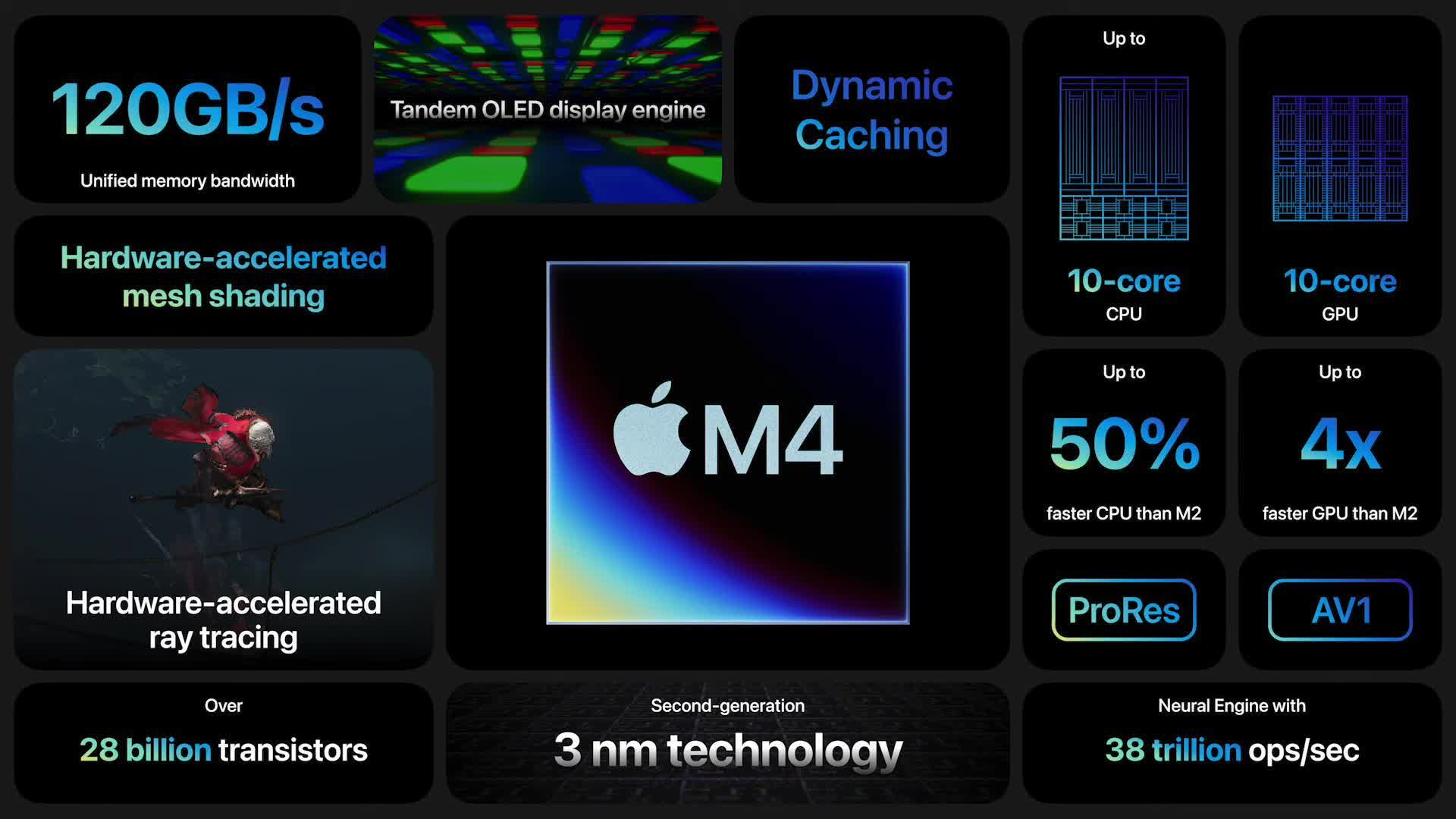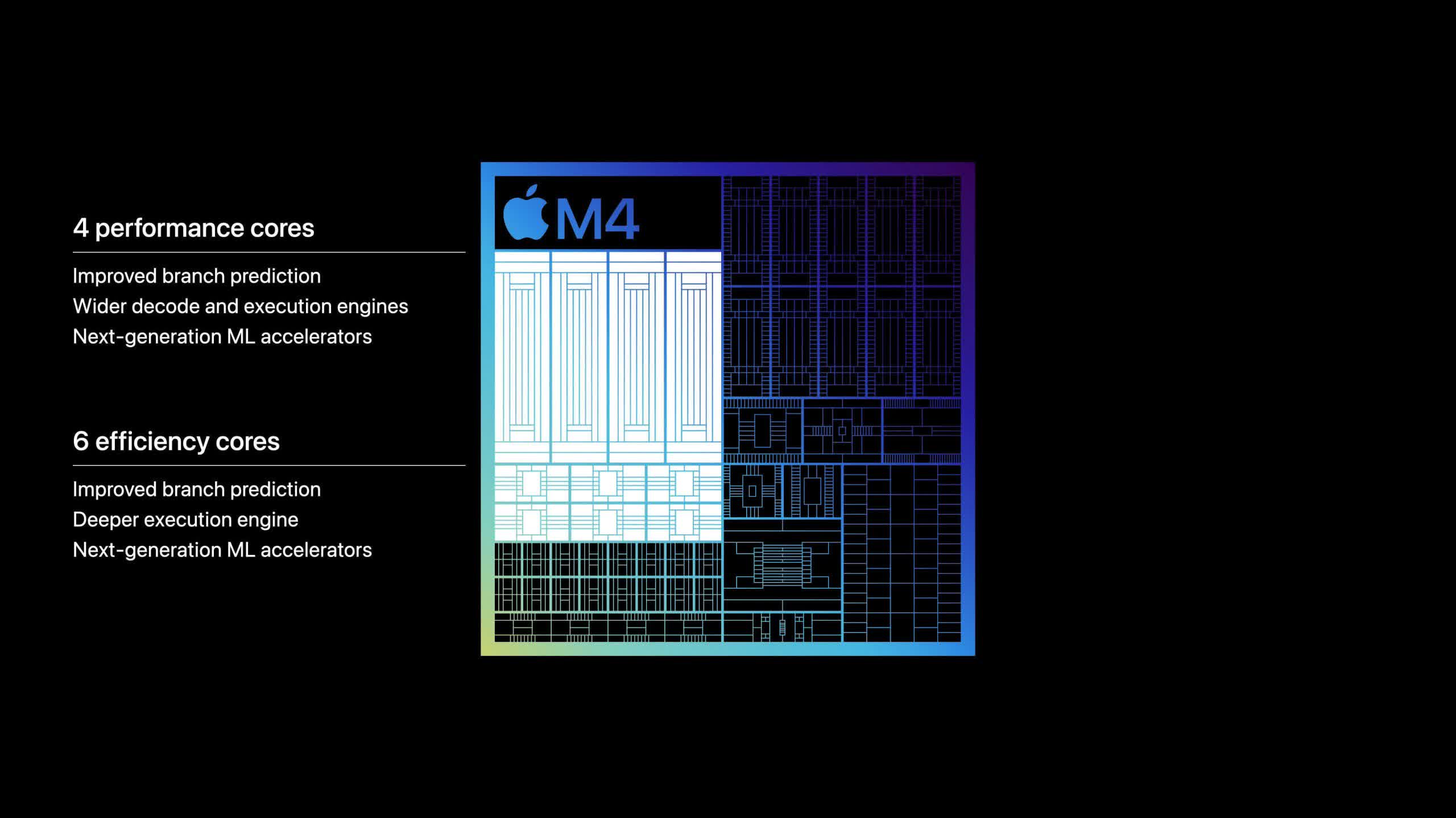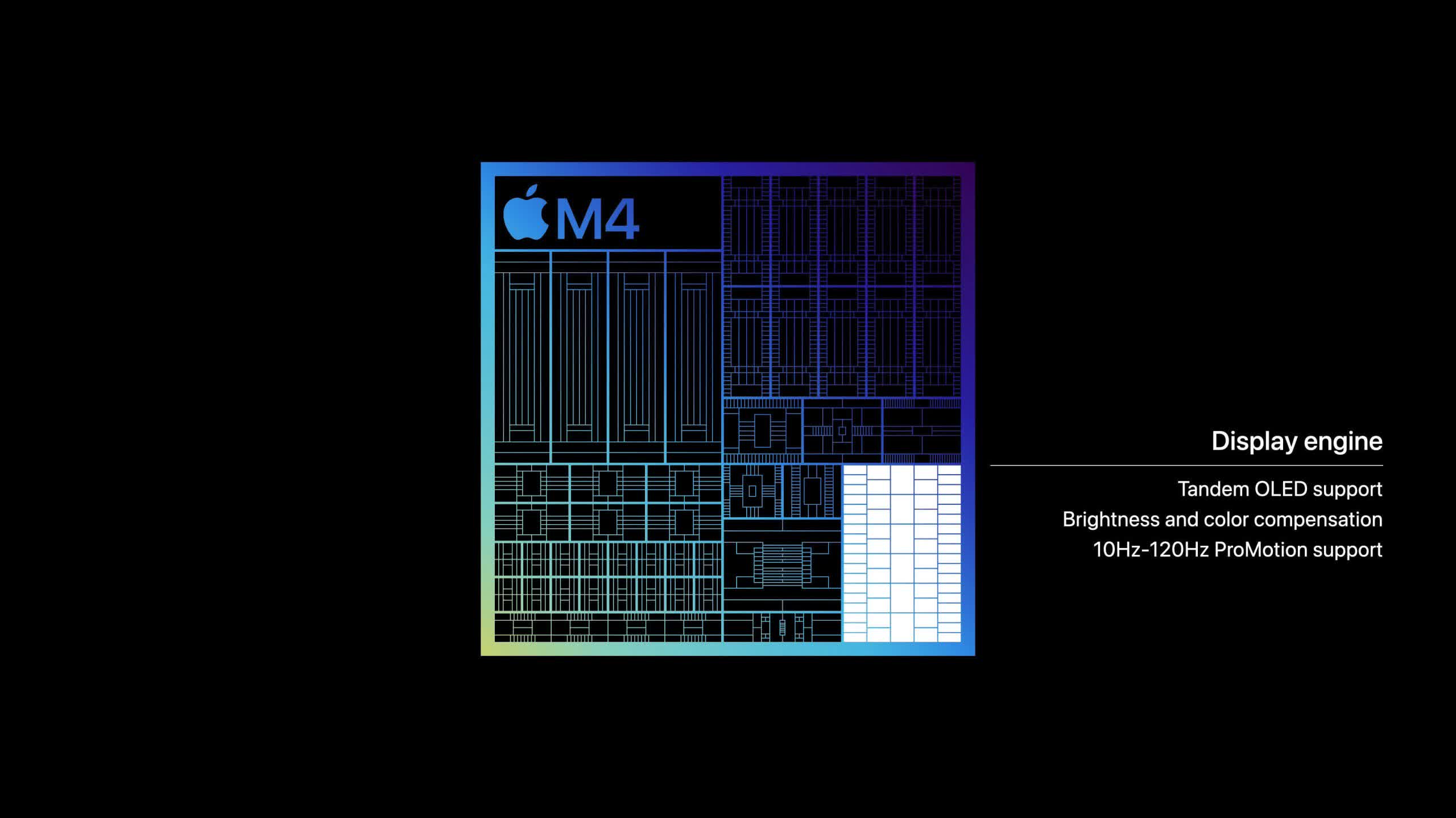Something to look forward to: With its newly announced iPads, Apple is fast-tracking the introduction of its M4 processors to compete in the upcoming AI PC race. Although the Cupertino giant claims it has the most powerful NPU on the market, Qualcomm might disagree. Meanwhile, Intel is preparing significant AI performance upgrades over the next year, and Nvidia claims that its GPUs reign supreme in generative AI.
Apple's event mostly focused on iPads, but the presentation also introduced the M4 – the company's next-generation in-house SoCs. As expected, the processors offer performance improvements over the M3 and M2, but Apple's rundown also delivered a preview of the company's AI PC strategy for 2024.
The segment focusing on the M4 could be considered a sneak peek, as the company only unveiled the standard variant and mostly focused on its performance improvements over the last iPad Pro model. Apple is expected to fully reveal the M4 lineup at WWDC in June, likely with new Macs.
The iPad Pro is skipping the M3 altogether, a chip Apple introduced just last year. This means that the M4 brings some of its predecessor's features to tablets for the first time, such as a 3nm node, dynamic caching, mesh shading, and ray tracing. The CPU is 50 percent faster than the M2 featured in the last iPad Pro, and the GPU is four times faster.
Compared to the standard M3, the M4 features a similar 10-core GPU but increases the CPU core count from eight to 10. Additionally, the SoC gains 3 billion transistors, bringing the total count to 28 billion.
One of the new features of the M4 is a display engine to help the new iPad Pro's OLED screens produce better brightness and colors. However, the most significant improvement of the new SoC is likely its enhanced AI performance.
Prior reports indicated that the M4 would mark the beginning of Apple's push toward offering products that run on-board AI applications, which are less reliant on cloud services used by programs such as ChatGPT, Bard, or DALL-E. The company's flex that, at 38 TOPs, the M4's neural engine is the world's fastest, appears to vindicate the rumors, but competition is set to heat up quickly.
AI PCs featuring Qualcomm's Snapdragon X Elite should begin shipping sometime in mid-2024. The company claimed that its new SoC outperformed M3, and the spec sheet's 45 TOPs of NPU performance suggests it might also compare favorably against M4.
The Arm-based Snapdragon X Elite aims to become the Windows equivalent of Apple Silicon. Apple's latest processors have enabled recent games like Resident Evil Village and Assassin's Creed Mirage to run on iPhones and iPads. In a similar vein, Qualcomm showed off its upcoming chip maintaining playable framerates in modern titles like Baldur's Gate 3 (which might come to Apple devices next year).
Meanwhile, Intel, which began the push for AI PCs with Meteor Lake late last year, plans to significantly increase its AI capabilities with Panther Lake next year. The 18A (1.8nm) chip will double the AI performance of Arrow Lake, which is expected to launch in the second half of 2024.
While Apple, Intel, Qualcomm, and AMD focus on enhancing on-device AI using NPUs, Nvidia believes GPUs are better suited to the task. The company claims that its RTX dedicated graphics chips, millions of which are already in the wild, can achieve between 100 and 1,300 TOPs. Nvidia is set to introduce the next generation of RTX, codenamed Blackwell, later this year.


